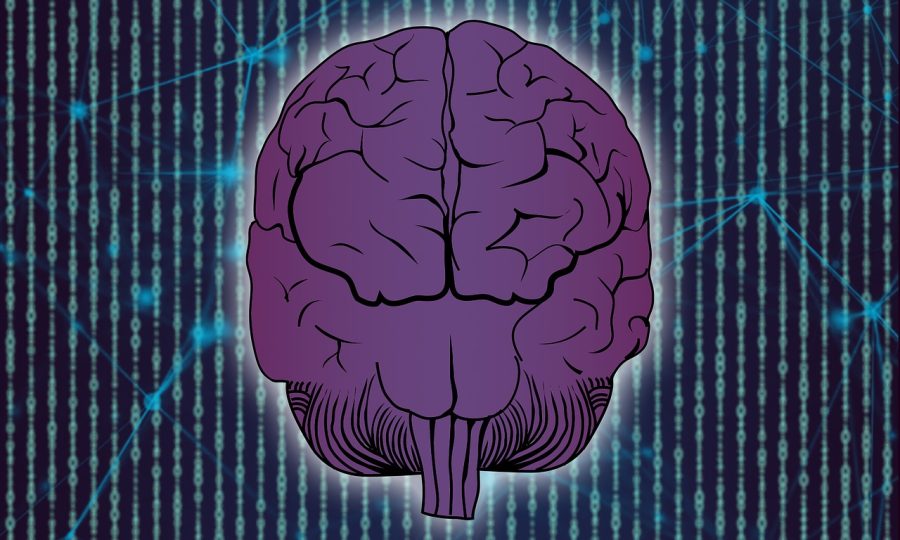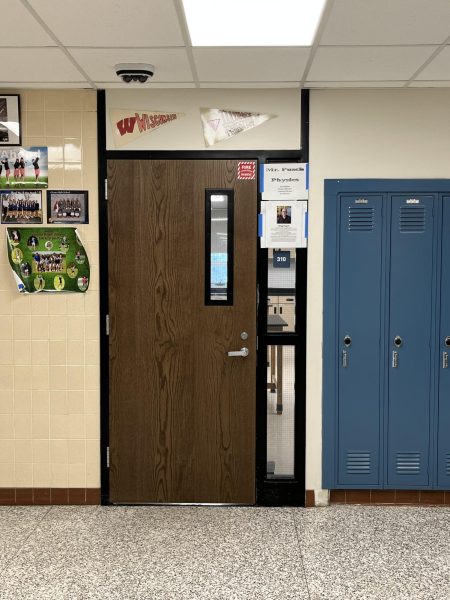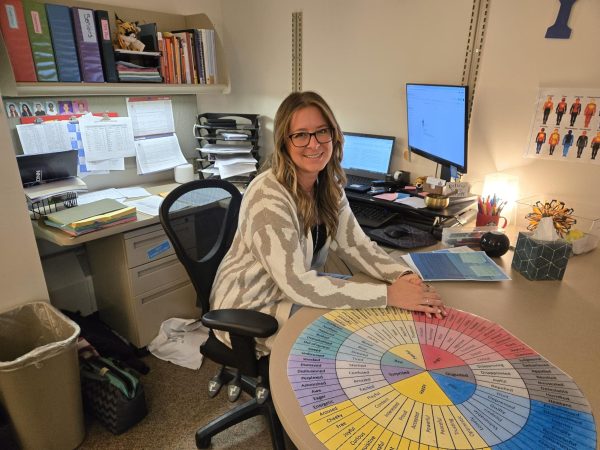Wellbeing Club & Zen Room Benefitting Students at OHS
After a stir in everyone’s lives due to the ongoing COVID-19 pandemic, students at Orono High School have faced ongoing struggles with their mental health. This has brought new opportunities for clubs, such as the Wellbeing Club, to help these students refocus themselves and prioritize not only their mental health, but their physical wellbeing too.
“The Wellbeing Club is primarily student-led, so I’d say it’s easier for students to connect with other students in that aspect,” club co-advisor Mrs. Ibs said.
According to Caroline Frostick, a psychotherapist at the University of East London, the importance of a teenagers wellbeing is highlighted through school connectedness which, in turn, will have a positive impact on one’s mental health. With the Wellbeing Club, connecting students to others proves a more willingness to be more open about their mental health and demonitizes the stigma that comes from hiding it. The club also allows for students to have a voice and converse with others who are in the same position as them.
“We have seen increased usage of the Zen Room ever since it was put in, in Oct. of 2021. Whether you participate in the club or not, the room is a space for students to go when they need a short 10-15 minute break to refocus and practice things such as steady breathing or just to relax and play with fidgets,” co-advisor Ms. Haagenson said.
The room originally branched from OHS’s Student Voice Club. Students in the club advocated for the room and took the initial steps needed to put it in place.
“There are definitely some areas for improvement [in regards to the Zen Room]. We are always looking for feedback from the students, and some things we heard being advocated for were more open spaces to refocus, such as the library. [On the other hand], we’ve also heard the benefits of having a smaller, more private and personalized space,” Haagenson said.
School environments impact students’ mental health significantly, according to Frostick. The Zen Room provided by OHS counselors provides a safe space for students to go to when they are experiencing any type of mental health interruptions during their school day, or when they just need some time to get in touch with themselves again.
According to Neil Humphrey, a professor of Psychology of Education at the University of Manchester, Bounce-Back is a brief school-based intervention program aimed to improve students’ understanding of resilience and wellbeing. The program also improves to build students’ confidence with friendships, make behavioral changes and provide practical skills. Similar to the Wellbeing Club, both school programs urge students to dial in on their mental health and focus on mental wellbeing.
“The club allows students to learn ways in which they can benefit their wellbeing and shows them that they have options and people to go to when they need someone to talk to about something,” co-club leader Gigi Martin said.
News of the club originally sparked before COVID, in the spring of 2020. After going into lockdown, leaders of the club at the time had little opportunity to connect with students in regards to their mental wellbeing. Martin picked up where the club left off and, now, the club is prospering throughout the high school as a way for students to connect with each other.
According Dinesh Bhugra, professor of Mental Health and Cultural Diversity at the Institute of Psychiatry, Psychology and Neuroscience at King’s College London, the stigma and discrimination surrounding those with mental health has become widely prelavent across the world. On top of that, those who struggle with their mental health often find themselves unable to get the help they need in a significant amount of time, ultimately ending in poor outcomes, according to Bhugra.
“The club is a space where students can have a voice and express themselves,” Ibs said.






















































